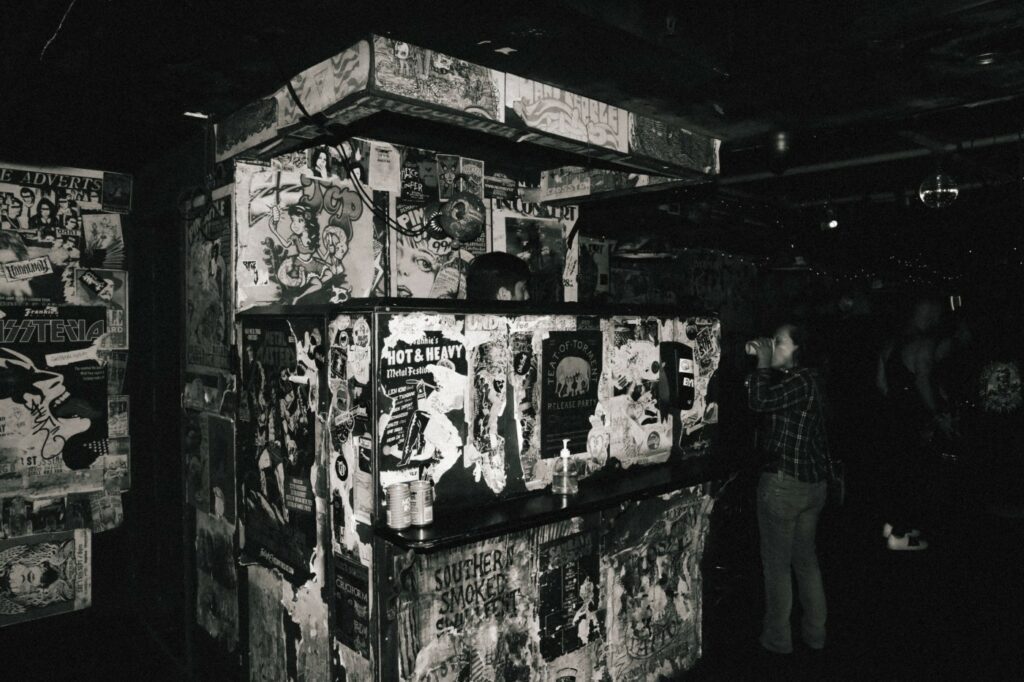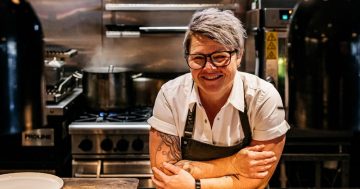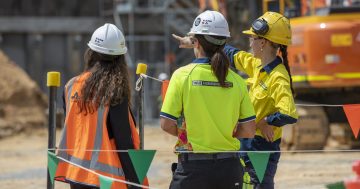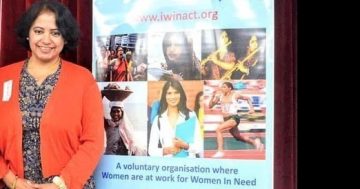
The now-closed Frankie’s Pizza is one of the venues mentioned in the SMH exposé. Photo: Swillhouse.
CONTENT WARNING: This article contains references to sexual assault and harassment.
A recent Sydney Morning Herald exposé has shone the light on appalling sexual assault and harassment allegations made by female staff working for the Swillhouse hospitality group in Sydney. The story made for shocking reading, but for women who have worked in kitchens, bars, cafes and restaurants, it was all too gut-wrenchingly familiar.
It’s tempting to imagine that these issues exist elsewhere in the ‘big bad city’, but as a former chef with over 10 years’ experience in Canberra’s hospitality industry, I have personally witnessed and experienced varying levels of misogyny and harassment in the workplace. I count myself lucky to have avoided the worst of what is experienced by far too many women in the industry that can involve serious sexual assault, often followed by the trauma of not being believed and losing work when speaking up.
This luck was partly due to my position in the industry: working in a kitchen rather than behind the bar afforded me a level of safety from intoxicated patrons. But I wasn’t immune to the toxic culture of ‘boys club’ kitchens, which were overwhelmingly male-dominated and hierarchical.
“Penne up” was a common phrase used by the chefs I worked with in one particular kitchen. While it could easily be disguised in kitchen communication, it was used as shorthand slang to let the male chefs know when an attractive woman entered the restaurant. It doesn’t take much imagination to work out what the penne refers to. Other variations were invented to describe women’s race, age and size. The impact of these comments was played down, and it was viewed as light-hearted banter (boys will be boys, after all), but it pointed to a more insidious culture that failed to value women’s safety and inclusion.
I chose to move from working night shifts at restaurants to day shifts at cafes. While I was privileged to have the freedom to make this transition, it came at a cost; there were fewer opportunities for career advancement, professional growth and industry recognition. On the positive side, the hours were (slightly) more sociable, and the focus on coffee rather than alcohol improved the workplace culture.
But it certainly wasn’t perfect.
Homophobic and gendered slurs were still regularly used. It was also common for male chefs and managers to describe a busy brunch service using the language of violent sexual assault: the busier we were, the more graphic the description. It was emotionally exhausting to regularly remind my coworkers that no, we did not ‘get totally raped’ today, we just served a lot of customers.
For a long time, women in hospitality who spoke out about these issues were ignored or ostracised. Many stayed silent fearing they would lose their jobs, and vulnerable apprentices kept quiet while they counted down until the abusive chef would sign off on their accreditation. The industry also relies heavily on employees with working visas whose ability to stay in the country is tied to their employment status.
After years of playing along or ignoring sexist comments at work, I remember the outcome when I finally got fed up and complained. I was taken aside for a chat about my attitude, where the head chef told me that I couldn’t expect special treatment because I was a woman.
“Nobody is going to pussyfoot around you just because you’re a girl. You’ve got to harden up and get over it if you want to work in kitchens.”
Women in hospitality have historically looked out for each other with informal networks of rumour and quiet words of advice. Sometimes, I hear male restaurant owners or chefs say they would love to hire more women, but not many even apply. I wonder if they’ve considered that women may not be applying to work for them because a friend of a friend texted them to say it wasn’t safe.
Those quiet words of advice are becoming louder, and crucially, a significant cultural shift is happening where they are being heard, believed, and amplified. However, it will take a reckoning at all levels of hospitality to change the culture and create an industry where women feel safe.
Canberra-based Women in Wine and Hospitality education group Venus Vinifera is hosting its first Subject Matters Symposium in September, which will include discussions about inclusivity and safety for women in hospitality.
The Australian Human Rights Commission is working with Sydney-based group Women and Revolution (WaR) to discuss what women believe needs to change to address workplace sexual harassment in the hospitality industry. Find out more about their research.
If this article has raised concerns for you or someone you know, contact the National Domestic Family and Sexual Violence Counselling Service on 1800 RESPECT (1800 737 732).
If you know more about this issue contact lridge@region.com.au.





















